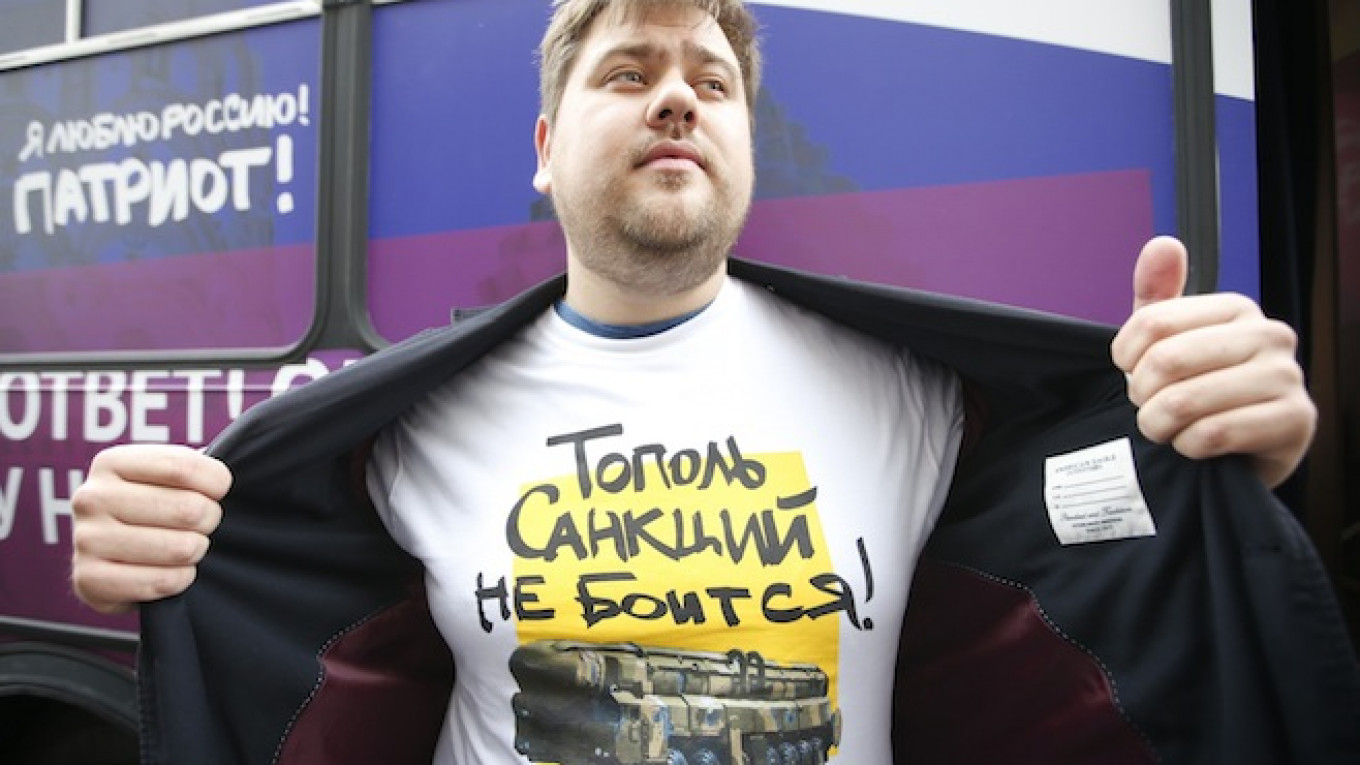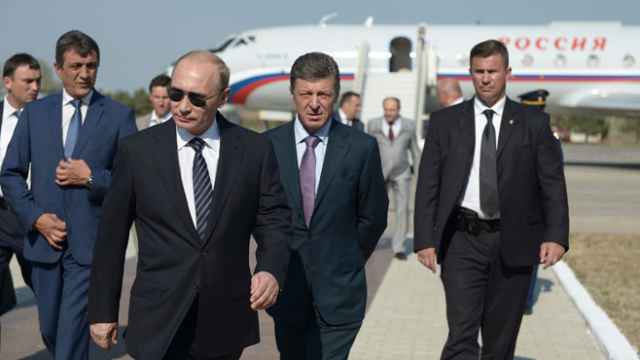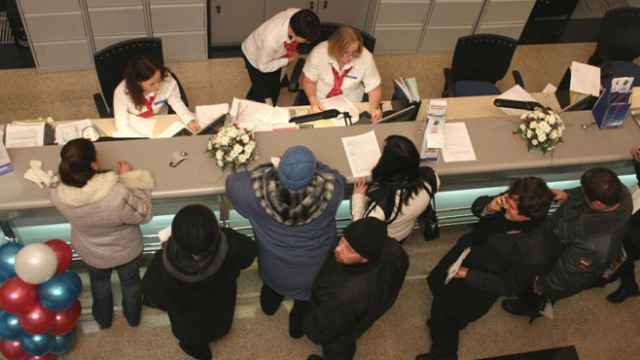Despite an economic slump and rising inflation, the majority of Russians believe that Western sanctions and Russia's retaliatory ban on food imports will actually help the country's economy, a poll published Thursday showed.
Only 25 percent of respondents expect sanctions to damage the Russian economy, and only 26 percent expect they or their families will personally face problem due to sanctions, according to the poll by the independent Lavada Center.
Nearly 60 percent said the sanctions and counter-sanctions will be to Russia's economic benefit.
While the average citizen may not be apprised of the situation, Western sanctions over Russia's support for separatist rebels in eastern Ukraine have already put a halt on investment, spurred capital outflows — which rose to more than $75 billion over the first half of this year — and frozen economic growth.
Meanwhile, Russia's retaliatory ban on certain Western food imports was largely responsible for driving up year-on-year inflation to 8 percent in September, according to state statistics.
But despite higher food prices, the respondents said they were prepared to give up even more foreign products. Asked how they would feel about a complete boycott on all foreign goods, the largest group — 40 percent — said they would “probably feel positive” about such a decision, while another 18 percent said they would wholeheartedly support it.
Besides food, Russia imports a wide range of foreign goods from the West, including high-tech machinery, pharmaceuticals and automobiles.
Nor does support for President Vladimir Putin's policies in Ukraine appear to be waning. When asked whether they thought Russia should cease support for the separatists in eastern Ukraine as the U.S. and EU have demanded, only 16 percent of respondent said yes.
Nearly 70 percent thought that Russia should continue its support. The Russian government has officially denied supporting the rebels militarily, although it has publicly sent several aid convoys to eastern Ukraine.
Russians also increasingly view the sanctions as an attempt to punish the entire Russian nation, rather than just those people responsible for Russia's policy in Ukraine.
Forty-one percent of respondents in the latest survey thought sanctions were directed “against broad segments of the population,” up from 27 percent in May. Meanwhile, the number who thought the sanctions were aimed at a small group fell from 42 to 30 percent.
The earliest rounds of sanctions, which began following Russia's annexation of the Crimean Peninsula from Ukraine in March, targeted individuals with close ties to President Vladimir Putin. The U.S. and EU only began to strike major companies in July following the downing of Malaysia Airlines Flight MH17 over eastern Ukraine, which the West believed to be the work of the pro-Russian separatists.
The survey was carried out from Sept. 26 to Sept. 29 among 1,630 people of 18 years or older in 134 towns and cities across Russia. The margin of error did not exceed 3.4 percent.
Contact the author at [email protected]
A Message from The Moscow Times:
Dear readers,
We are facing unprecedented challenges. Russia's Prosecutor General's Office has designated The Moscow Times as an "undesirable" organization, criminalizing our work and putting our staff at risk of prosecution. This follows our earlier unjust labeling as a "foreign agent."
These actions are direct attempts to silence independent journalism in Russia. The authorities claim our work "discredits the decisions of the Russian leadership." We see things differently: we strive to provide accurate, unbiased reporting on Russia.
We, the journalists of The Moscow Times, refuse to be silenced. But to continue our work, we need your help.
Your support, no matter how small, makes a world of difference. If you can, please support us monthly starting from just $2. It's quick to set up, and every contribution makes a significant impact.
By supporting The Moscow Times, you're defending open, independent journalism in the face of repression. Thank you for standing with us.
Remind me later.






